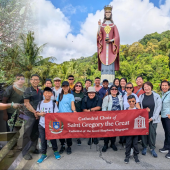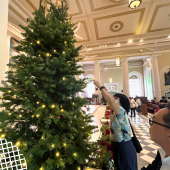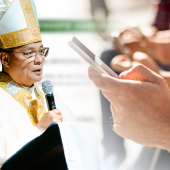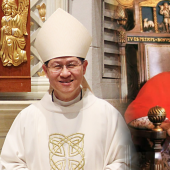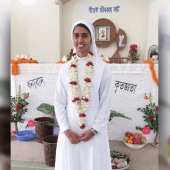Singapore’s Cardinal Goh Shares Insights on Papal Conclave and Media Portrayal
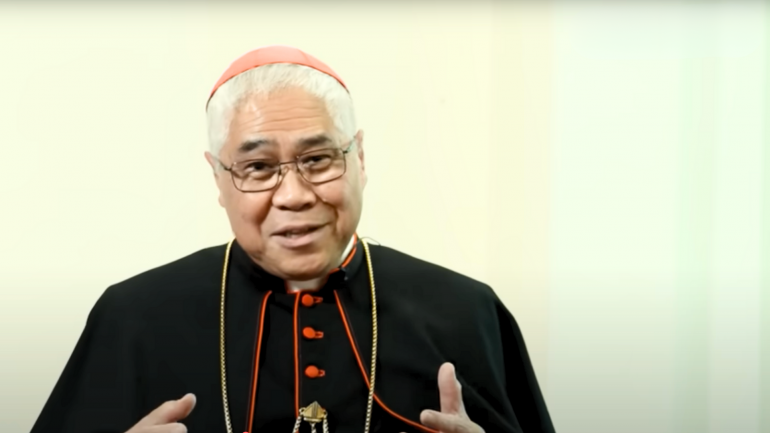
On June 8, The Straits Times released a video interview with Cardinal William Goh, where the Archbishop of Singapore recounted his first experience voting in a papal conclave and reflected on how it contrasted with the film The Conclave.
ST: Were there any surprising moments for you?
Cardinal Goh: Yes, that Pope Leo was elected. It is really a mystery of God’s hand at work.
Some people are curious as to exactly how the election of the pope takes place. And perhaps, I think it could have been propelled by the movie The Conclave, you know.
ST: Your Eminence, you are the first Singaporean cardinal to be part of the conclave to elect a new pope. Can you tell us about your experience?
Cardinal Goh: It was a beautiful experience. But I think it was a moment in which I felt that—for us cardinals—the whole weight of the world was upon our shoulders to elect the pope who is the best for humanity and for the Church. And so, it was a great responsibility.
The most important part of the whole election was actually the nine days of meetings before the conclave. That was the most important part. Also, the informal interactions and sharing among the cardinals—whether during breaks or at night over informal dinners—helped us get to know each other, to hear one another’s views and the challenges we each face.
The most solemn part would be the conclave itself, which is conducted in a very sacred atmosphere. So actually, it was not just an election; it was a sacred moment.
ST: Were there any surprising moments for you?
Cardinal Goh: Surprising moments—yes, that Pope Leo was elected. He was not one of the well-known figures or, as we say, a candidate for the papacy. I think not many people knew him, especially cardinals from Asia and Africa. So, it was a surprising choice that he was elected.
ST: The conclave is regarded as something monumental, sacred, and involves a unique voting process. Why do you think it has intrigued so many people?
Cardinal Goh: I suppose there is also the secrecy involved in the voting. The election of a pope is unlike elections in the secular world. It’s not a parliamentary process. Nobody comes forward and says, “Please choose me as the pope,” or, “I’m the best person to lead the Church.” Nobody champions himself. In fact, I think most cardinals do not want to become pope because it is a heavy responsibility.
It is really a martyrdom in itself. It’s truly an act of faith. During the conclave—before and during every vote—we must swear before God that the person we vote for is truly the one we believe is best to be the successor of St. Peter. It is really a mystery of God’s hand at work. And perhaps, I think the curiosity may have been stirred by the movie The Conclave. Some people really want to know how the process unfolds.
ST: Do you mind me asking if you watched the movie?
Cardinal Goh: Yes, I watched it with my staff. The Conclave that you see in the movie is very sensational. Certain aspects are true—for example, we’re not allowed to bring any digital devices, and there are no recordings. It’s very strict—very, very strict. But other parts are over-exaggerated. Cardinals are not as portrayed in the movie, where they are seen trying to manipulate the situation, lobbying one group against another, or having secret night meetings—those things are not true at all.
What is true is that once the conclave starts, we are very busy. We hold formal meetings—what we call general congregations—where all the cardinals gather in the “Aula,” or hall. These are opportunities for cardinals to speak and share their challenges. And in the midst of these conversations, the future pope is among us, though we don’t know who it is. What the movie lacks is the spiritual dimension. It forgets to show the importance of prayer—how much the individual cardinals pray. That part is missing. So the film ends up feeling like a political drama.
ST: So, in summary, take the movie with a pinch of salt?
Cardinal Goh: Oh yes, yes. Of course, it’s dramatized—otherwise, how would they make money?
ST: When deciding who to vote for, what were some of the things that you prayed for?
Cardinal Goh: The pope I felt we needed was someone who could bring unity. Pope Leo has always been very clear about the Church’s teachings. Since taking office, he has remained clear on the Church’s stance on certain moral issues. That clarity is needed today. And of course, Pope Leo must continue the work of Pope Francis—definitely.
ST: What was the moment like when then-Cardinal Prevost got the required number of votes to become pope?
Cardinal Goh: We all breathed a sigh of relief. But it wasn’t entirely unexpected. As the voting progressed, we could see who was gaining support. After two or three rounds, you know who the frontrunners are. So you know who will likely cross the two-thirds majority.
ST: Did you get to speak to Pope Leo when he was elected? Did you congratulate him?
Cardinal Goh: Of course. Once we confirmed he had reached the two-thirds majority, we held a liturgical rite to accept him as the Holy Father and to pray for him. After that, each of us took turns to show our respect and offer our congratulations.
ST: Your Eminence, were there any funny moments?
Cardinal Goh: Oh yes. The day after his election, when Pope Leo was meeting with us, we asked him if he would consider holding a consistory—a gathering of all cardinals—at least once a year for a few days. This would allow us to get to know each other better so that, when the time comes to elect a new pope, we would be better informed. And Pope Leo smiled and said, “Oh, I see you are already preparing for the next conclave.”
ST: With the late Pope Francis having declared this the Jubilee Year of Hope, what are your hopes for the Church and her people?
Cardinal Goh: My hope for Pope Leo is the same as for the Church, because Pope Leo represents the Church. This pope is deeply concerned with building peace. His Augustinian spirituality emphasizes unity. And it would be wonderful if Pope Leo can truly become a bridge-builder—not just for Catholics, but for the whole of humanity.
Christopher Khoo, a Singapore-based freelance journalist and educator, based this article on the YouTube transcript of the interview. Watch the full interview here: https://youtu.be/t7M3EDlA5aM?feature=shared
Radio Veritas Asia (RVA), a media platform of the Catholic Church, aims to share Christ. RVA started in 1969 as a continental Catholic radio station to serve Asian countries in their respective local language, thus earning the tag “the Voice of Asian Christianity.” Responding to the emerging context, RVA embraced media platforms to connect with the global Asian audience via its 21 language websites and various social media platforms.









